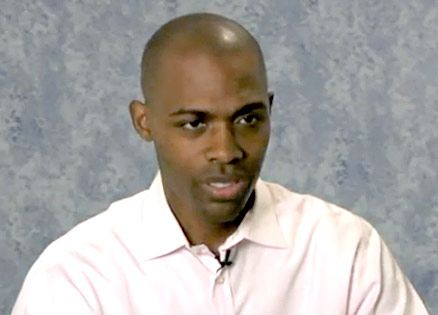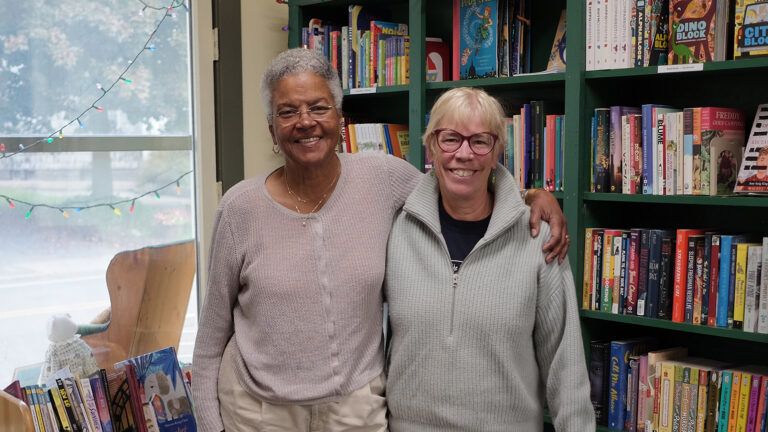Video 1
[GENTLE MUSIC] Everyone starts the year off saying, this is my year to lose weight. I’m going to go to a gym. I’m going to eat better. I’m going to stop smoking, stop drinking so much. And it lasts for two or three weeks. Why does it last for such a short period of time? Because people do not plan, and you have to prepare for it. You have to prepare for the tough part of it, with the urges that you’re going to out with your friends. They’re going to be eating bad fried food, and yet you want to stay on a decent diet plan, you have to prepare for that mentally.
Most people fail in weight loss because they don’t have the mental right. And the mental isn’t just saying, I’m going to do it this year. This is my year. It’s so much deeper than that. The mental is literally sitting down and thinking your way through the plan, thinking your way through your lifestyle habits, being honest with yourself. In order for that to work, you have to sit down and take a minute. I say a minute. Take a couple hours, not at once. But sit down and work on what has been your obstacle or obstacles in losing weight.
The second biggest reason I think people fail at diets is they’re unrealistic. I want to lose 30 pounds by March. No. Is it doable? In a lot of cases, yes, but that’s a big goal. You should expect to lose between one and two pounds a week. And for some people, one pound every other week. Most people have been on diets before, so you know how your body loses weight. You have to decide whether or not that kind of program can work for you, but don’t set unrealistic goals.
Because what happens with an unrealistic goal is even though you’re really being successful, because you’re goal is so out of reach or so ridiculous, you think you’re failing, so you throw away the plan and try to start something new. And that’s why people are always diet shopping.
Choose a diet program where you can look at the food menu and say, I can reasonably stick to this. Make sure it’s a little challenging. You’ve got to challenge yourself a little bit. But don’t make it so it’s unrealistic that after two weeks, you just say, I can’t take this anymore, or, I can’t find the food because the food is so gourmet or so particular. You have to choose a program that you can actually access the food, enjoy the food, and not feel like you’re not getting enough to eat.
What I specialize in is telling people, let’s be honest with ourselves. You’re going to eat, quote unquote, “bad food.” Let’s incorporate that into the diet rather than ostracize it. And so when you do do it, you feel like you’ve cheated, or you’ve done something really bad, and therefore, you kind of lose all hope.
[GENTLE MUSIC]
Video 2
Hi. I’m Dr. Ian Smith. I am the author of the new book, “Happy, Simple Steps to Get the Most Out of Life.” People know me from Celebrity Fit Club, where I’m the diet guru. But I decided to take, well, a little journey on my own and try to talk about the happiness that we all want, all deserve, and that we all can get.
[MUSIC PLAYING]
Finding happiness as a uniform definition for everyone is very difficult. There have been thousands of research papers defining happiness, finding happiness, surveys. This is what I’ve gathered from the research. Happiness should have three elements. It should have pleasure. It should have engagement. And it should have meaningfulness. Those three things define happiness.
The mistake that most people make is they believe that pleasure equals happiness. You buy a new car. You’re excited. You’re happy. That’s pleasure. That’s not the full breadth of happiness. But it’s part of happiness.
Now, if you bought this new car because this new car could allow you to be able to help someone go somewhere that they otherwise would not be able to go– take a senior citizen to church, take a senior citizen to the food pantry– that is a broader spectrum of being happy, because now it’s not just about the car itself that’s bli– bringing you pleasure. It’s what the car could do in a meaningful way, in an engaging way to bring about happiness.
So I like to think of happiness as that triumvirate where you have those three components to it. And you can find those things in simple things. Sometimes just gardening or painting can do these kind of things for you.
We always think about, well, you have to save the world in these kind of deeds. It’s not about saving the world necessarily. It’s about you feeling like the activity you’re participating is is so engaging that you’re so engrossed in it. And you’re passionate about it. And it makes you feel good. It makes someone else feel good. And it’s doing something. It’s meaningful. Now, who is to decide what’s meaningful? There isn’t no definition, a strict definition, of what’s meaningful, but what’s meaningful to you.
Happiness is a journey also. It’s not just a moment in time. You know, you just can’t say I’m happy today and not happy tomorrow. Finding happiness is a journey. And in a journey, there are ups and downs. And there are twists and bends.
But it’s how you feel on the whole. So even during your darkness, the key here is if you’re happy person even during darkness, you can find happiness. Even during the grieving process of losing someone, you can find happiness in your faith. That’s what I think happiness is.
[MUSIC PLAYING]




